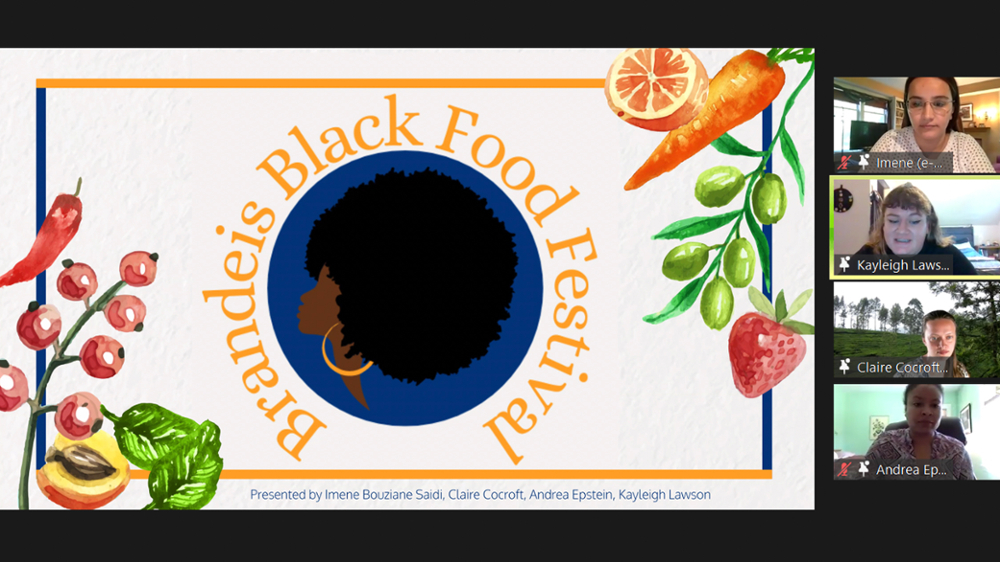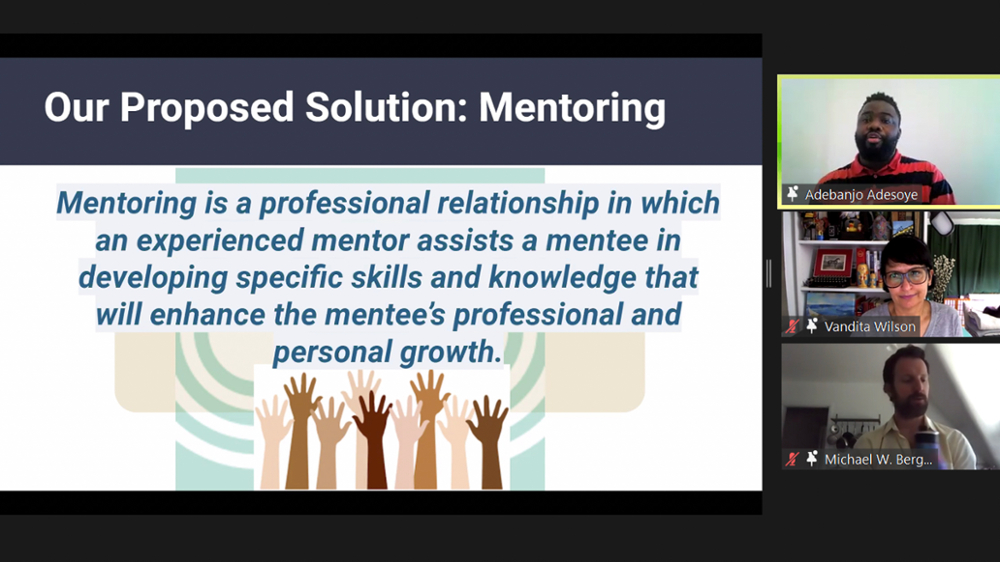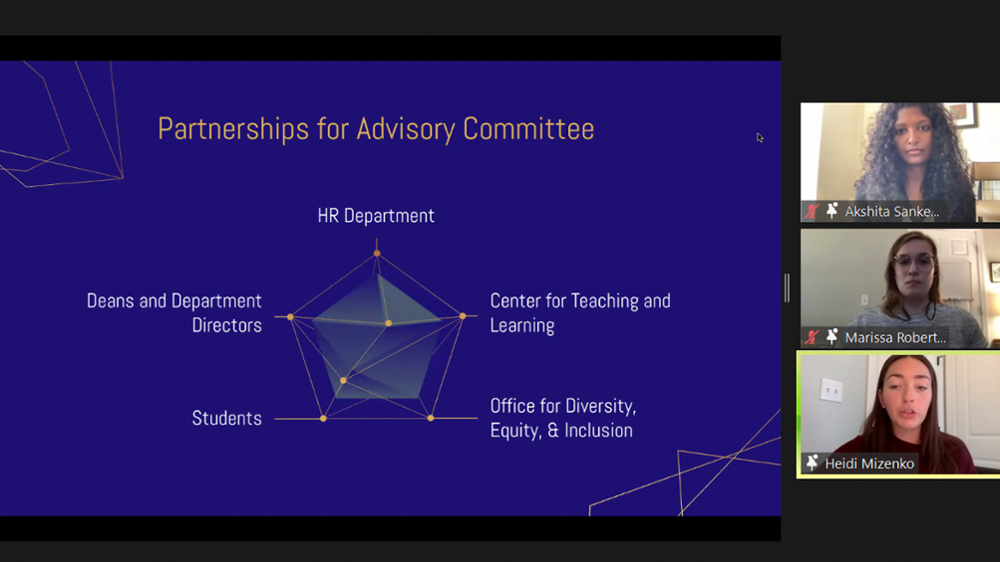On June 5-6, the Heller School hosted its first Racial Equity Action Challenge at Heller (REACH), dedicated to creating actionable initiatives to address racial disparities at Heller and Brandeis and the local community.
Tynika Booth, administrator in the Associate Dean's office, kicked off the event with opening remarks.
“Racial injustice is systemic, systematic and deeply rooted, with implications at the individual, institutional and structural levels,” she said. “In coming together this weekend, you have taken this opportunity to turn your thoughts and concerns about racial injustice into workable solutions.”
The pilot was conceived and organized by the Racial Equity Student Working Group: Andrea Epstein, MBA’21, Kayleigh Lawson, MBA/MA SID’22, Peggy Zhang, MBA/MA SID’21, Michael Berger, MBA/MPP’22, Sonja Luvara, MBA/MPP’21, and Miriam Krugman, MBA/MPP’22, with support from Social Impact MBA Program Director Carole Carlson.
“The time for conversation alone has long passed,” says Epstein. “We all need to take action.”
Fifteen students joined the weekend challenge. Over the course of the two-day program, they worked with alumni, faculty and staff mentors, including recent graduate Sara Jean-Francois, MPP’21, and Sangeeta Tyagi, senior social scientist at the Center for Youth and Communities, to develop their ideas. The students split into four groups and proposed plans for faculty mentoring of BIPOC (black, indigenous, and other people of color) students; creating partnerships and offering training to better support diverse faculty members; developing a Brandeis Black Food Festival to support local Black-owned businesses; and connecting Brandeis MBA students with entrepreneurship hubs in Roxbury.
Dean David Weil, Associate Dean Maria Madison, and Heller Alumni Association Board Member Jessica Pacheco-Estévez, MM’98, served as judges.
“All four ideas, created in just 48 hours, had professional, profound and compelling presentations and warranted further investigation,” Madison says.
The judges decided to award each group $500 in initial funding, with the potential for more as the projects reach particular milestones. Each team is now paired with a mentor from Heller’s administration to help move the work forward.
“Our initiatives over the years have really been building towards promoting diffusion innovation,” says Madison. “Every institute, every center, every academic program needs to talk about how discrimination and racism is related to their work. The fact that the students took it upon themselves to create a working group, they’re demonstrating this model works.”
The idea for the working group came out of discussions following the 21-Day Racial Equity Challenge and proseminar in January, says Luvara, and the REACH program was modeled in part on the Heller Startup Challenge. While this year’s challenge participants were primarily MBA students, she hopes to draw classmates from across programs in following years.
“For any lasting change, you need all the stakeholders involved, from students to administration,” she says.
Since most of the working group members are current students, they’re eager to carry on the work of the challenge in to the summer and next school year, when students can gather in person to develop new ideas.
Lawson says, “In a graduate program that’s short like Heller’s, you often don’t have institutional knowledge with each cohort. We want to introduce this idea to incoming students and help focus efforts, so we don’t have to reinvent the wheel each time. I’m excited to see some of these projects move forward, and I’m excited to do it again next spring with greater participation and more projects.”
To support the prize fund, contact Kate Kaplan, Director of Development and Alumni Relations (katekaplan@brandeis.edu).



